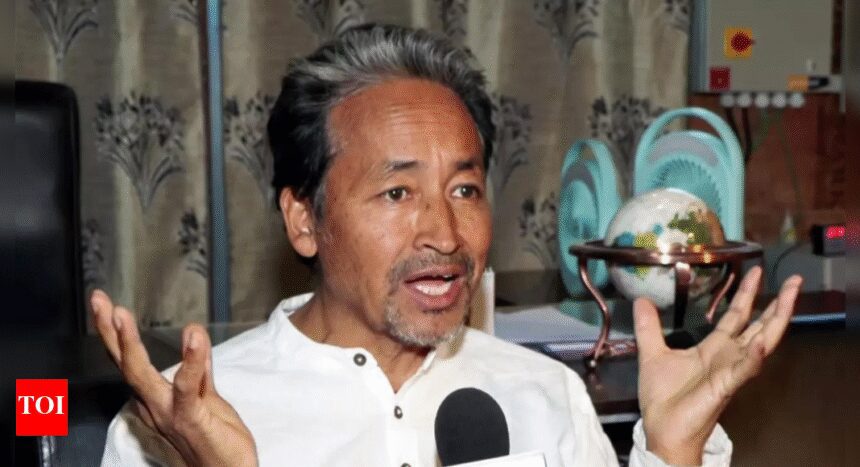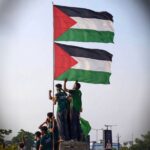NEW DELHI: Hours after the detention of climate activist Sonam Wangchuk in Leh, Ladakh, on Friday, his location remains undisclosed. Officials reported that Wangchuk, taken into custody by a police team led by Ladakh Police chief S. D. Singh Jamwal, was moved out of Ladakh shortly afterward. Sources within the Ladakh administration informed the news agency PTI that Wangchuk is being charged under the National Security Act; however, this has yet to be confirmed.
Wangchuk’s arrest coincided with significant unrest in the Union Territory, which experienced its worst violence in decades. Protests demanding statehood and the implementation of the Sixth Schedule turned violent two days prior.
Following his arrest, Wangchuk’s wife, Gitanjali Angmo, accused the administration of treating him “like a criminal without any reason.” She expressed concerns that the government was disseminating “false narratives” to damage his reputation. Angmo stated, “He was treated like a criminal without any reason. It is the worst form of democracy… They have just taken him like a criminal.” She alleged that their household was ransacked by law enforcement, further accusing the government of unfairly labeling her husband as “anti-national.” Angmo emphasized Wangchuk’s contributions to national interests through his advocacy in agriculture and environmental issues, urging the government not to tarnish the image of those who have peacefully protested for five years.
Former Jammu and Kashmir Chief Minister Omar Abdullah described Wangchuk’s arrest as “unfortunate” but not unexpected, citing that the central government had been pursuing him for some time. Abdullah criticized the government for failing to keep its promises to the people of Ladakh and Jammu and Kashmir, stating the arrest seemed inevitable given the government’s prior actions.
Aam Aadmi Party (AAP) national convenor Arvind Kejriwal condemned the central government’s handling of the situation, describing its actions as “oppressive and dictatorial.” In a post on X, he compared the fate of dictators throughout history to the current circumstances in India.
The Apex Body Leh, which leads the movement for statehood in Ladakh, reassured that their protests were peaceful and that any recent violence stemmed from an uncontrollable faction of youth. They denied any involvement of Wangchuk in the unrest, noting that they were fostering nonviolent expressions of dissent.
As tensions continued, a curfew was extended into its third day in Leh, with the District Magistrate of Kargil implementing additional restrictions to maintain order. Mobile internet services were also suspended as a precaution.
While Ladakh police have initiated multiple FIRs and detained over 50 individuals linked to the unrest, the Ministry of Home Affairs (MHA) has taken steps such as revoking the FCRA registration of the Students’ Educational and Cultural Movement of Ladakh (SECMOL), founded by Wangchuk, citing claims that he incited violence among youth. MHA officials have been meeting with representatives from the Leh Apex Body and the Kargil Democratic Alliance to address the ongoing situation.










